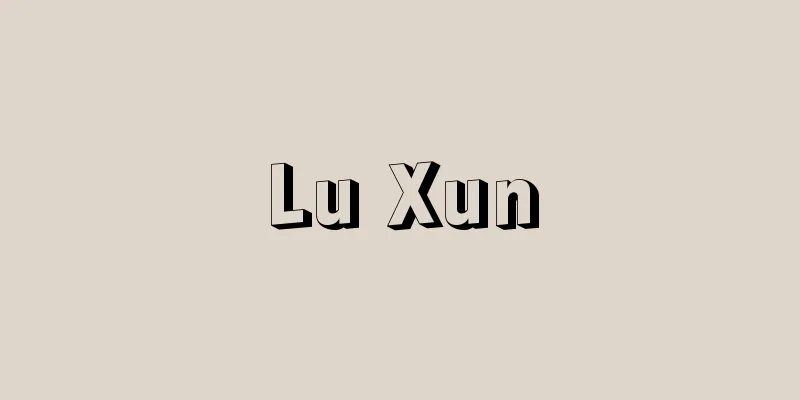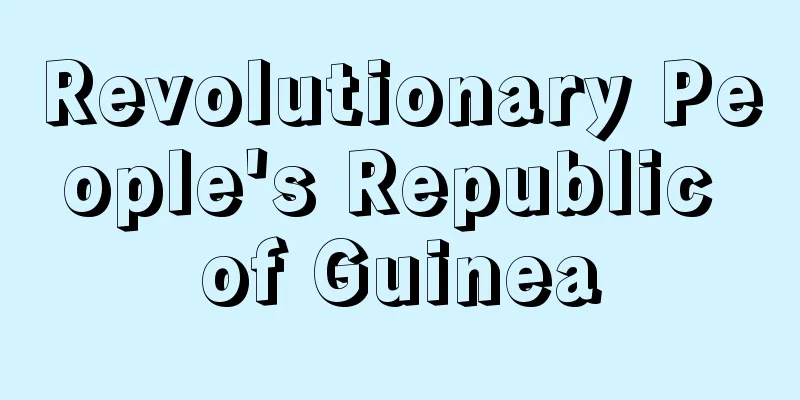Lu Xun

|
Chinese writer and thinker. Born on September 25th in Shaoxing, Zhejiang Province. His real name was Zhou Shuren, and his pen name was Yu Cai. He also used dozens of pen names, including Xunxing, Tang Qi, and Ba Ren. His grandfather was a landowner who also served as a county governor, but his grandfather was imprisoned for corruption in the imperial examinations, and his father died of illness, and his family suddenly fell into decline. As the eldest son, he experienced the hardships of life. He himself said that he "saw the true faces of people in the world." In 1898, he entered the Jiangnan Naval Academy in Nanjing, but dropped out due to dissatisfaction with the content, and then entered the Mining and Railway Academy attached to the Jiangnan Land Academy, where he was exposed to modern Western thought translated by Yan Fu, as well as reformist newspapers and magazines. In 1902 (Meiji 35), he was sent to Japan as a government-sponsored student, and after graduating from Kobun Gakuin, he entered Sendai Medical College. At that time, he took a revolutionary stance and joined the Guangfu Society, which aimed to overthrow the Qing dynasty. While studying at Sendai Medical College, he changed his focus to literature and dropped out. Upon returning to Tokyo, he planned a literary movement magazine called "Shinsei" (New Life), but it was never published. However, the contents that were supposed to be published there can be seen in a series of essays published in "Henan" (a magazine launched in Tokyo in 1907 by Chinese students studying abroad), such as "Cultural Bias Theory," "The Theory of the Power of Poetry in Mara," and "The Theory of Breaking Bad Voices" (all 1908). His image of Chinese change at the time was to honor poets with strong personalities and rebellious spirits - warriors of the spiritual world - and encourage the birth of such warriors in China, and to inflame the hearts of the people with their cries. Although he claimed to have focused on the problems of the people, his ideas were abstract and abstract, lacking any concrete theory of movement or organization, and thus shared both positive and negative characteristics with the revolutionary ideas of the time. In parallel with these essays, he published a collection of overseas novels (1909) with his brother Zhou Zuoren, a translation of short stories from Russia and Eastern Europe, but neither of these works received much attention when he returned to China in 1909. After returning to China, he taught in Hangzhou and Shaoxing, during which time the Xinhai Revolution (1911) came, and he joined the new government as a member of the Ministry of Education, moving to Beijing. However, the reality following the Xinhai Revolution greatly betrayed his vision of the revolution, and he spent a period of loneliness under the backlash of Yuan Shikai. He was initially reluctant to take part in the literary revolution that soon took place, centered around New Youth, but in 1918, encouraged by a friend, he published Diary of a Madman, and subsequently published novels such as The True Story of Ah Q (1921-1922), which were later collected into The Call (1923) and Wandering (1926). This work gave substance to the literary revolution and marked the establishment of modern Chinese literature, and for him it also marked a reflection on the state of Chinese society and the people, and a reexamination of the revolutionary image of his youth. He also wrote "miscellaneous essays" filled with sharp social and cultural criticism. Miscellaneous essays would eventually make up a large portion of his writings, and become a unique genre within Chinese literature. During this period he lectured at Peking University and elsewhere on A Brief History of the Chinese Novel (published 1923-1924). This work pioneered the new field of novel history, and is considered a classic in the study of novel history. In 1925, during the "Beijing Women's Normal University Incident," a clash between the old and new factions over reforms at Beijing Women's Normal University, he resisted the warlord government together with progressive students and faculty, and was dismissed from the Ministry of Education for this reason, but he appealed to the Pingzhengyuan and won. He also wrote a collection of prose poems, "Wild Grasses" (1927), which particularly highlights his own inner contradictions. He returned to China once during his studies abroad and entered into an old-fashioned marriage with Zhu An (1878-1947), but around this time he met Xu Guangping, a student at the Women's Normal University, and gradually fell in love with her. In the summer of 1926, he transferred to Xiamen University, but dissatisfied with the atmosphere there, he moved to Guangdong, the base of the National Revolution, in early 1927, where he experienced the April 12 Incident (Shanghai Coup), a major turning point in his ideology. In the autumn of 1927, he moved to Shanghai, from which time he lived with Xu Guangping. In 1929, they had a son, Haiying (1929-2011), and lived in Shanghai until their death. In Shanghai, after the failure of the national revolution, he was criticized by the Creative Society and the Sun Society, which advocated "revolutionary literature" based on the consciousness of the proletariat, as a petty-bourgeois writer who could only see the dark past. However, he launched a "debate on revolutionary literature" against them, criticizing them for being too easy on literature and revolution. On the other hand, he himself actively translated Marxist art theory and Soviet literature. Eventually, under the guidance of the Chinese Communist Party, the attitude of the Creative Society and others changed, and when the Left Writers League was formed in 1930, he became a central figure and uncompromisingly debated the oppression of the Kuomintang government and its pro-government writers. On the other hand, his eye for even the weak points of the left wing and his comments were apparently difficult for some young party member writers to understand, and there was a certain friction between them. One example of this was the "debate on national defense literature" he launched with Zhou Yang and others in 1936 over the anti-Japanese united front. He had an early interest in art, and in 1931 he invited Uchiyama Kanzo's younger brother Kakitsu (1900-1984) to hold a woodblock print workshop, nurturing young woodblock artists and laying the foundations for modern Chinese printmaking. Other major works include the memoir-like collection of works "Morning Flowers and Evening 1928," the unique collection of short stories "New Stories" (1936) on the subject of mythology and history, "The Two Land Records" (1933), a collection of letters with Xu Guangping, and numerous collections of miscellaneous writings. He also devoted himself to translation, and has translated a volume of works that is almost equivalent to his entire work. His translations cover a wide range of subjects, including Japanese literature and Russian literature, and in the field of Japanese literature he translated works by Mori Ogai, Natsume Soseki, Akutagawa Ryunosuke, as well as Hakuson Kuriyagawa and Noburu Katagami. He passed away on October 19, 1936. [Noboru Maruyama March 18, 2016] "The Collected Works of Lu Xun, translated by Takeuchi Yoshimi, 6 volumes (1976-1978, Chikuma Shobo/Chikuma Bunko)" ▽ "Lu Xun, by Takeuchi Yoshimi (1944, Nihon Hyoronsha/New edition, 1961, Miraisha/Kodansha Bungei Bunko)" ▽ "Impressions of Lu Xun, by Masuda Wataru (1948, Kodansha/New edition, 1970, Kadokawa Shoten)" ▽ "The Intellectual Heritage of Humanity 69: Lu Xun, by Iikura Teruhira (1980, Kodansha)" ▽ "Lu Xun: His Literature and Revolution, by Maruyama Noboru (Heibonsha/Toyo Bunko)" [Reference items] | | | | | | | | | |Source: Shogakukan Encyclopedia Nipponica About Encyclopedia Nipponica Information | Legend |
|
中国の文学者、思想家。9月25日浙江(せっこう)省紹興(しょうこう)に生まれる。本名は周樹人、字(あざな)は予才、ほかに迅行、唐俟、巴人など数十の筆名を用いた。家は祖父が知県も務める中地主だったが、祖父が科挙の不正事件で入獄、父も病死して、にわかに没落、彼は長子として生活の苦労も体験した。「世の中の人々の真の顔を見た」と自らいっている。1898年南京(ナンキン)の江南水師学堂に入学したが、内容に不満で退学、江南陸師学堂付設の鉱務鉄路学堂に入学、ここで厳復(げんふく)訳による西洋近代思想や変法派系の新聞、雑誌に触れた。 1902年(明治35)官費留学生として日本に派遣され、弘文(宏文)(こうぶん)学院を経て仙台医学専門学校に入学した。このころ思想的には革命派の立場にたち、清(しん)朝打倒を目ざす光復会にも加入した。仙台医専在学中、志を文学に転じて退学、東京に戻って企画した文学運動の雑誌『新生』は未成に終わったが、そこに発表するはずであった内容は、『河南』(1907年中国人留学生が東京で創刊した雑誌)に掲載した「文化偏至論」「マラ詩力説」「破悪声論」(いずれも1908)など一連の論文にみられる。強烈な個性と反逆精神をもつ詩人=精神界の戦士を顕彰して中国にもその誕生を促し、その叫びによって民衆の心を燃えたたせる、というのが当時の彼の描いた中国変革のイメージであった。民衆の問題を中心課題としているとはいいながら、具体的な運動論も組織論ももたぬ抽象的、観念的なものであった点で、当時の革命派の思想と、正負両面の特徴を共有していたといえる。これらの論文と並行して、弟の周作人(しゅうさくじん)とともにロシア、東欧の短編の翻訳『域外小説集』(1909)も出版したが、いずれもさしたる反響もないまま1909年帰国した。 帰国後、杭州(こうしゅう)、紹興で教師をするうちに辛亥(しんがい)革命(1911)を迎え、新政府に教育部員として参加、北京(ペキン)に移った。しかし辛亥革命後の現実は、彼の革命像を大きく裏切るもので、袁世凱(えんせいがい)の反動のもと、「寂寞(せきばく)」の時期を送る。やがて『新青年』を中心に起こった文学革命にも当初は消極的だったが、1918年、友人の勧めもあって『狂人日記』を発表、以後『阿Q正伝(あキューせいでん)』(1921~1922)等、のちに『吶喊(とっかん)』(1923)、『彷徨(ほうこう)』(1926)にまとめられた小説を発表した。これは文学革命に実質を与え、中国近代文学の成立を示すものであるとともに、彼にとっては、中国社会と民衆のあり方を振り返り、青年時代の革命像を再検討する意味をもったものでもあった。また一方鋭い社会・文化批評を込めた「雑文」を執筆した。雑文はやがて著作の大きな部分を占め、中国文学のなかでも独自の一ジャンルとなることになる。この時期には北京大学その他で『中国小説史略』(1923~1924刊)を講じた。これは小説史という新しい分野を開拓したもので、小説史研究の古典とされる。 1925年、北京女子師範大学の改革をめぐって新旧両派の衝突した「女師大事件」では、進歩派の学生・教員とともに軍閥政府に抵抗、そのためいったんは教育部員を罷免されたが、平政院に提訴して勝利を収めた。一方とくに自己の内面の矛盾に光をあてた散文詩集『野草(やそう)』(1927)を書いた。彼は留学中に一度帰国して朱安(しゅあん)(1878―1947)と古い型の結婚をしていたが、このころ女師大の学生だった許広平(きょこうへい)と出会い、しだいに愛が生じた。1926年夏、厦門(アモイ)大学に移ったが、その空気に不満で1927年初め、国民革命の根拠地だった広東(カントン)に移り、ここで四・一二事件(上海(シャンハイ)クーデター)を体験、思想的にも大きな転機となった。1927年秋上海に移り、このときから許広平と同居、1929年に1子海嬰(かいえい)(1929―2011)をもうけ、死まで上海に住んだ。 上海では国民革命の挫折(ざせつ)を機に、プロレタリアートの意識にたつ「革命文学」を唱える創造社、太陽社から、過去の暗黒しかみることのできぬ小ブル文学者と非難を受けたが、逆に、彼らが文学に対してのみならず革命に対しても安易であることをついて「革命文学論戦」を展開した。一方、自らマルクス主義芸術論やソビエト文学を精力的に翻訳した。やがて創造社等の側にも中国共産党の指導もあって態度に変化が生まれ、1930年左翼作家連盟の結成に至ると、その中心的人物となり、国民党政府の弾圧やその御用文人と非妥協的に論争した。一方、左翼内部の弱点も見逃さない彼の眼(め)とその発言は、若い党員文学者の一部には理解しがたいものもあったらしく、彼らとの間にはある種の摩擦もあった。1936年抗日統一戦線をめぐって周揚(しゅうよう)らとの間で展開した「国防文学論戦」などもその表れであった。 芸術にも早くから関心をもっていたが、1931年内山完造(うちやまかんぞう)の弟嘉吉(かきつ)(1900―1984)を招いて木版画講習会を開いたのをはじめとして若い木版作家を養成、中国現代版画の基礎を築いた。作品のおもなものにはほかに、回想録風の作品集『朝花夕拾』(1928)、神話・歴史に題材をとったユニークな短編集『故事新編』(1936)、許広平との往復書簡集『両地書』(1933)、雑文集多数がある。また翻訳にも力を注ぎ、全著作にほぼ匹敵する分量の翻訳がある。翻訳は、日本文学、ロシア文学ほか多岐にわたり、日本文学では森鴎外(もりおうがい)、夏目漱石(なつめそうせき)、芥川龍之介(あくたがわりゅうのすけ)などのほか、厨川白村(くりやがわはくそん)、片上伸(かたかみのぶる)などのものが多い。1936年10月19日没。 [丸山 昇 2016年3月18日] 『竹内好訳『魯迅文集』全6巻(1976~1978・筑摩書房/ちくま文庫)』▽『竹内好著『魯迅』(1944・日本評論社/新版・1961・未来社/講談社文芸文庫)』▽『増田渉著『魯迅の印象』(1948・講談社/新版・1970・角川書店)』▽『飯倉照平著『人類の知的遺産69 魯迅』(1980・講談社)』▽『丸山昇著『魯迅――その文学と革命』(平凡社・東洋文庫)』 [参照項目] | | | | | | | | | |出典 小学館 日本大百科全書(ニッポニカ)日本大百科全書(ニッポニカ)について 情報 | 凡例 |
<<: Russko‐kitaiskii bank (Russian‐Chinese name)
Recommend
Unryu willow - Unryu willow
A deciduous tall tree of the Salicaceae family (A...
aqa
…The Spaniards began to use it as a general term ...
Guangzhou Bay
A bay on the eastern coast of the Leizhou Peninsu...
Madonna and Child on the Throne - Gyokuza no Seiboshi
…This is the true establishment of Giotto's a...
Kuwabara Jitsuzo
Born: December 7, 1870 (Meiji 3) in Tsuruga Died M...
Motor oil - Motor oil
Also known as mobile oil or engine oil. A lubrican...
Easter Monday
...In addition, there is a custom of eating eggs ...
Dragon skewer - Dragon skewer
A scenic spot in Tosashimizu City, southwest of K...
Post-Jomon pottery
Pottery used mainly in the Hokkaido region followi...
Capnodium
...Sooty mold rarely causes definitive damage, bu...
Bacolod (English spelling)
A city on the west coast of Negros Island in the w...
Hœnir (English spelling)
…The Vanir offered Njörðr and his son Frey, the b...
Igneous rock - igneous rock
A rock formed by the cooling and solidification o...
British Action
...This is generally called the Viennese action a...
Participation in management
Generally speaking, it refers to workers' par...


![Saita [town] - Saita](/upload/images/67cba52c70d16.webp)






